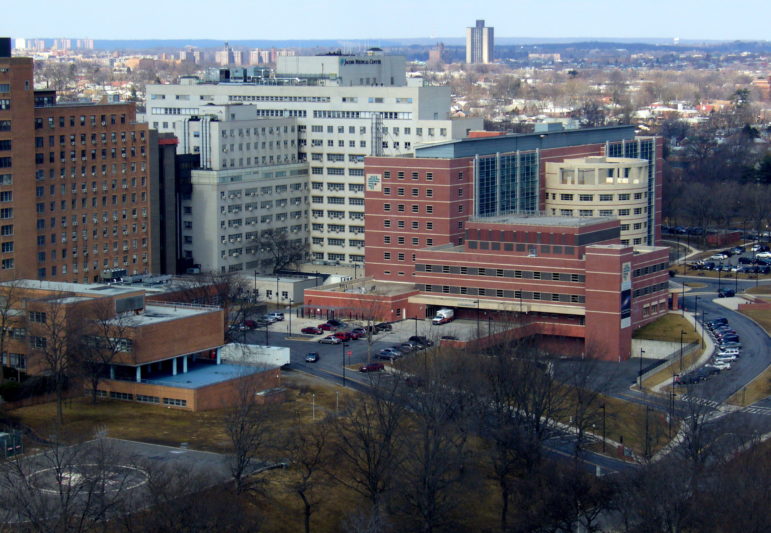
Zoirusha
Jacobi Medical Center and the other 10 Health + Hospitals Corporation facilities are under pressure to cut costs and find new revenue.
The politics of Tuesday evening’s first official general election mayoral debate are pretty clear. Mayor de Blasio has a commanding lead in the polls but isn’t safe until the votes are counted: He has to avoid making mistakes—a basic goal that de Blasio consistently achieves in debates—and project a hopeful vision that sets him apart from the two opponents on stage. Assemblywoman Nicole Malliotakis faces the biggest test of her political career, where she must move beyond the familiar critiques of de Blasio and provide clear policy alternatives without diving too deep into conservative ideology out of step with the city. Independent Bo Dietl has to prove he has not just laugh lines to dispense but also a few cogent ideas for how to run the city better than the incumbent.
The bottom line is, unless something dramatic happens, the debate is unlikely to change the trajectory of the race itself. But since one of the people on stage is going to be mayor come January, and at least one of the challengers will probably mount another run in four years, the encounter could establish where people come down on the following key issues facing the city:
Crime: Crime is at or near record lows despite the virtual elimination of stop and frisk and significant decreases in arrests. Given that evidence, should New York City move further away from “broken windows” policing?
Education: Is the racial segregation in New York City schools a barrier to broad educational achievement? If not, why not? If so, how will you alter those demographic skews?
Homelessness: Should we build more permanent housing in lieu of new shelters and, if so, how should we pay for it and where should it be located—in the areas where homeless families come from, or spread across the city?
Transit: What will New York City do to improve the transit system if neither congestion pricing nor the millionaires’ tax passes in Albany?
Resiliency: Is New York City now resilient enough to justify new residential development in waterfront areas? What steps would you take to make sure the city is ready for the next major storm?
Property Taxes: It is widely agreed that the city’s current property tax system is flawed. Will you seek to reform it, and if so, how?
NYCHA: The current administration has put forward NextGen NYCHA in an effort to stabilize and preserve the system where at least 400,000 people live. But it is unlikely to close the $18 billion capital gap facing the authority. What is required from city government over the next four years if NYCHA is to survive? Do you support privatizing or selling off any of NYCHA’s assets to preserve the rest?
Public Hospitals: The current fiscal crisis is about more than the state’s alleged failure to provide financial support; bigger changes to healthcare also shape the threat to the Health + Hospitals system. Are public hospitals important to you, and, if so, what can the city do to save them?
Aging: By 2040, it is expected that 1.4 million New York City residents will be age 65 or older. What impact will that have on the city and how should local government respond?
Constitutional Convention: How will you vote on Question 1 and, if a convention does occur, what elements of the constitution will you seek to preserve or change to further the city’s interest? How will you approach the task of getting the convention to see things the same way?








